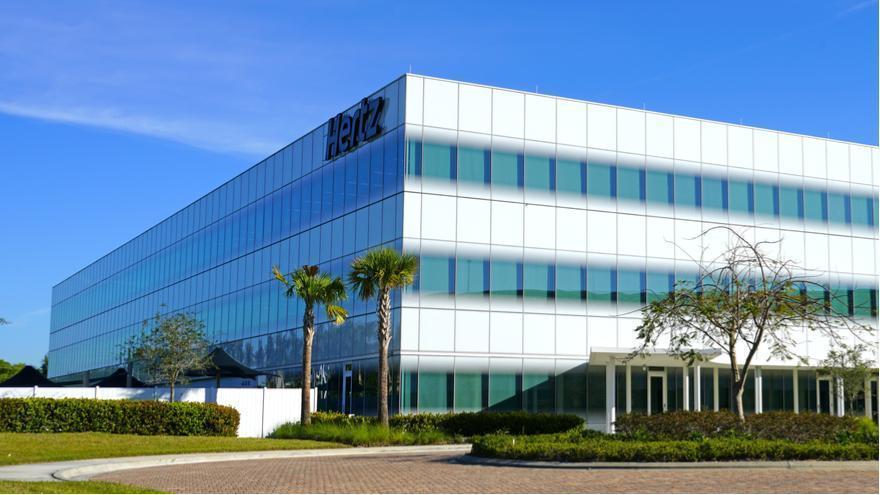Wholesale price impact from Hertz de-fleeting not as bad as you might think

Photo credit: EQRoy / Shutterstock.com.
By subscribing, you agree to receive communications from Auto Remarketing and our partners in accordance with our Privacy Policy. We may share your information with select partners and sponsors who may contact you about their products and services. You may unsubscribe at any time.
CARY, N.C. –
182,000 off-rental vehicles from one company hitting the wholesale ecosystem sounds like it could be a potentially damaging saturation of the market.
If it was happening all at once.
And if wholesale prices for off-rental were already at a tenuous position.
Neither factor appears to be the case with Hertz and its plans to wholesale that volume of cars per its bankruptcy agreement, according to an analysis from Larry Dixon and the team at J.D. Power.
In fact, Dixon does the math and finds that the average monthly volume under Hertz’s plan is actually less than what the company would remarket per month under normal circumstances.
“A variety of factors, including the fact that approximately 87,000 units should have already been disposed of by Hertz in June and July, have prompted J.D. Power to project relatively little impact to prices through the rest of the year,” Dixon, who is senior director of valuation services at J.D. Power said in an analysis.
Subscribe to Auto Remarketing to stay informed and stay ahead.
By subscribing, you agree to receive communications from Auto Remarketing and our partners in accordance with our Privacy Policy. We may share your information with select partners and sponsors who may contact you about their products and services. You may unsubscribe at any time.
“Under normal conditions, Hertz churns through approximately 550,000 units over an 18-month period,” he said. “This equates to 30,550 sales per month, or 60% more than what would be sold if Hertz’s remaining 96,000 vehicles were released to market in equal increments over the remainder months of 2020.”
As reported by Auto Remarketing's Nick Zulovich last month, Fitch Ratings said in a recent note that the monthly target vehicle-sales rate stated by the rental-car company is between 9,312 to 48,702 vehicles per month during the forbearance period. Hertz sold 21,000 to 31,000 non-program vehicles in May and June, according to the firm’s analysts, which pointed out that the rental car company disposed of about 11,250 vehicles per month before the coronavirus pandemic arrived.
How price strength comes into play
And then there’s the current pricing conditions. With pandemic-driven pent-up demand at high levels and low inventory levels due to manufacturing and supply chain interruptions, wholesale prices have reached record levels, according to J.D. Power. Consumers are moving to “nearly new” used vehicles amid new-car supply limitations, which has led to higher used prices, the company said.
The Manheim Used Vehicle Value Index has now hit all-time highs for two straight months, as a near 6% sequential lift in wholesale values pushed the index to 158.0 in July, according to Cox Automotive.
Manheim’s reading of wholesale prices last month beats year-ago figures by 12.5% and is nearly nine points higher than the previous record of 149.3 set in June.
In an analysis accompanying the index, Cox Automotive indicated that there was a 5.84% gain in wholesale prices in July when compared to June, adjusting for mix, mileage and seasonality.
That kind of price growth is especially evident in rental volumes.
“In fact, the recently launched J.D. Power Used Rental Wholesale Price Index — which tracks prices of rental fleet-oriented used vehicles that are up to 2 years old — shows that prices over the first 3 weeks of July were 6% higher than they were in February,” Dixon said in the analysis. “Used-vehicle prices in this category have actually reached the highest point on record.”
In the Manheim report, Cox Automotive analysts indicate that rental-risk prices were up 7.5% year-over-year and 5% month-over-month in July.
J.D. Power does anticipate wholesale prices moving down a bit in coming months, but the Hertz wholesale volumes won’t be the main culprit.
“Other more fundamental factors — such as waning pent-up demand, improved new vehicle inventory landscape, and macroeconomic headwinds related to the pandemic — will drive the pricing trajectory,” Dixon said.
And it appears Hertz is spreading its remarketing volume out. In fact, ADESA announced in July that it utilized its Simulcast+ digital auction platform to host a 22-site online sale on behalf of The Hertz Corp., selling cars digitally to buyers in 19 states during this single digital auction event.
The Simulcast+ platform, which ADESA first began using in April, is a new digital auction platform designed to simulate a live auction environment through a live streaming format that’s fully digitized and highly automated, parent company KAR Global said in a news release.
Looking forward, J.D. Power is looking at wholesale prices for rental vehicles to fall 4% by the end of the year and then steadily climb throughout 2021, with December 2021 prices expected to ahead of December 2020 prices by 3% and even with July 2020 prices.
“Price resilience in 2021 will largely be driven by a large reduction in late-model used vehicle supply stemming from the substantial decline in new rental fleet purchase activity,” Dixon said. “New-vehicle sales to rental fleets are expected to remain well below pre-virus levels for the foreseeable future.”


